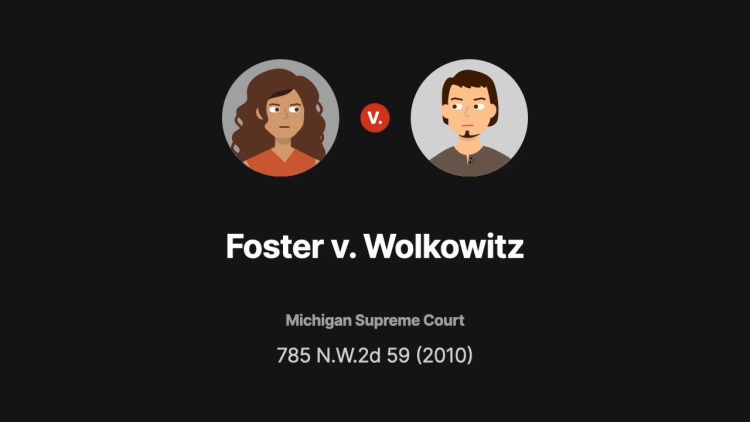Foster v. Wolkowitz
Michigan Supreme Court
785 N.W.2d 59 (2010)
- Written by Rose VanHofwegen, JD
Facts
Leah Foster (plaintiff) and David Wolkowitz (defendant) were unmarried when they had M. in Michigan. They signed and filed a Michigan acknowledgment of parentage (AOP) establishing Wolkowitz’s paternity. The next year, the couple moved to Illinois. When the relationship ended a year later, Foster returned to Michigan with the child and filed a paternity action five days later. The next month, Wolkowitz filed a custody suit in Illinois. The Michigan and Illinois judges conferred and decided to hold an evidentiary hearing to determine which state had jurisdiction under the Uniform Child-Custody Jurisdiction and Enforcement Act (UCCJEA). The Michigan court found it had jurisdiction, reasoning that the AOP qualified as an “initial custody determination” under the UCCJEA establishing jurisdiction over any custody, support, or parenting-time disputes, meaning signing the AOP effectively consented to Michigan jurisdiction. Because an AOP grants presumptive initial custody to the child’s mother, the court found that the couple already voluntarily invoked Michigan’s acknowledgement-of-parentage law to designate initial custody, making the UCCJEA provisions inapplicable. The Michigan court subsequently awarded physical custody to Foster, and the appellate court affirmed. Wolkowitz appealed to the Michigan Supreme Court.
Rule of Law
Issue
Holding and Reasoning (Young, J.)
What to do next…
Here's why 907,000 law students have relied on our case briefs:
- Written by law professors and practitioners, not other law students. 47,100 briefs, keyed to 996 casebooks. Top-notch customer support.
- The right amount of information, includes the facts, issues, rule of law, holding and reasoning, and any concurrences and dissents.
- Access in your classes, works on your mobile and tablet. Massive library of related video lessons and high quality multiple-choice questions.
- Easy to use, uniform format for every case brief. Written in plain English, not in legalese. Our briefs summarize and simplify; they don’t just repeat the court’s language.





